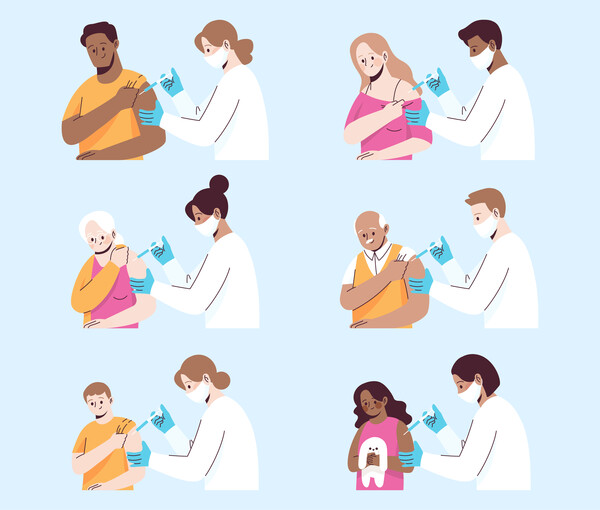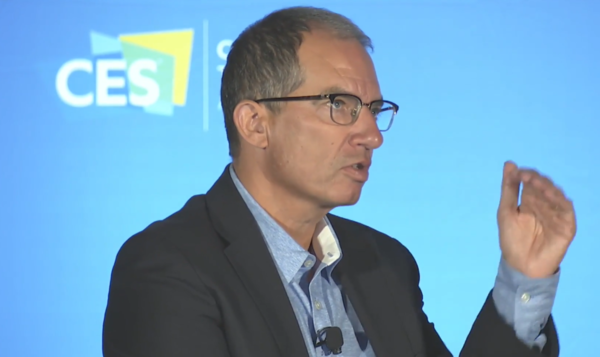![[Vaccine Innovation] Advancing personalized mRNA cancer vaccines [Vaccine Innovation] Advancing personalized mRNA cancer vaccines](https://hyperwarped.com/wp-content/uploads/2023/01/20225_20248_4350_v150.jpg)
All human beings possess 99.9 percent identical genes and yet, there are a million differences that cause individuals to respond differently to diseases and treatments.
People already have personalized immunotherapies for cancer and very soon, they may be getting their very own specially-made mRNA cancer vaccines.

Covid-19 vaccines might have overshadowed other treatments for two to three years due to the pandemic but there could be a sign of changes in 2023.
Both Moderna and BioNTech have set the stage for cancer to change the mRNA tale by revealing plans for its mRNA cancer vaccines in December.
Moderna in particular seems to be racing ahead with this agenda as Moderna’s cancer vaccine candidate combined with Merck’s Keytruda already showed a reduction in the risk of death or recurrence by 44 percent in stage III/IV melanoma patients compared to Keytruda alone in phase 2 trials.
The company is expected to present the full data set at an upcoming oncology medical conference.
In a recent discussion on personalized medicines on the penultimate day of CES 2023, Moderna CEO Stéphane Bancel shared about the company’s plan to develop a cancer vaccine to treat melanoma.
Many think that Covid-19 paved the way for mRNA vaccines and in terms of overcoming regulatory barriers, and this is true, he said.
At the same time, the pandemic also delayed the cancer vaccine clinical trial that Moderna was working on before the pandemic started.
“We could not get patients into hospitals as the risk of them contracting Covid-19 was too high and had to stop the trial which began in April 2019,” he explained.
Preventative or therapeutic cancer vaccines?
Although there is much anticipation for this cancer vaccine, it will not be the first cancer vaccine. Normally, when people think of vaccines, they expect to receive an injection that will confer protection against an infectious disease as the majority of vaccines usually perform this function.
However, cancer vaccines are a bit different. Unlike infectious pathogens (viruses or bacteria) which are quickly detected by the body’s immune system, cancer cells are very good at disguising themselves from the immune system and the antigens that present on cancer cells are sometimes unique to the individual.
Most are familiar with cancer as a genetic disease caused by a mutation or changes in the genes that cause cells to multiply and behave differently but some cancers are also caused by viruses.
For example, cervical cancer and head and neck cancer can be caused by the human papillomavirus (HPV) and liver cancer can be caused by the hepatitis B virus (HBV). Accordingly, there are four FDA-approved prophylactic vaccines and all are developed using the recombinant subunit platform.
For therapeutic purposes, there are two FDA-approved vaccines — the Bacillus Calmette-Guérin (BCG) and the Sipuleucel-T, for bladder and prostate cancer, respectively.
The BCG uses the live attenuated vaccine platform while the latter is an immunotherapy type vaccine that resembles CAR-T therapies as the vaccine dose is manufactured through a personalized approach that first collects and activates immune cells from the patient and then reintroduces these cells back into the body.
Therefore, cancer vaccines can either be preventative or therapeutic.
Professor Park Yeon-hee of Samsung Medical Center, who specialises in breast cancer, spoke about the ongoing GLORIA study of the Anti-Globo H Vaccine as an adjuvant treatment for patients with high risk, early stage triple negative breast cancer.
“There are a few ongoing trials for cancer vaccines including invitro and invivo studies to target cancer like the GLORIA study. After sucess of this adjuvant treatment, I think we can then consider transfering this vaccine for cancer prevention for high risk patients,” she told Korea Biomedical Review.
Meanwhile, Moderna and BioNTech’s mRNA cancer vaccines are using a personalized approach to create a therapeutic effect.
How mRNA cancer vaccines work?
Moderna CEO Bancel said the company started to think if it could design a product specific to every human being based on the versatility and ability to design and manufacture mRNA products in just 60 days.
Covid-19 mRNA vaccines work by sequencing the genome of the SARS-CoV2 mRNA, injecting a piece of mRNA that corresponds to a viral protein usually found on the virus’ outer membrane so that cells can manufacture an antibody against this antigen to formulate an immune response. These antibodies remain even after the pathogen has disappeared so that the immune system can recognize it if it reappears.

Cancer vaccines also follow a similar concept, explained Bancel.
“Firstly, we take a cancerous and healthy cell from the patient and sequence both, then send them to a cloud system to compare all their bases. We then use our artificial intelligence (AI) system to screen for approximately forty of the most relevant mutations on the outside of the cancer cell and encode this back into the mRNA product which can then be introduced to the immune system,” he elaborated.
He explained that this is all done in a specially designed factory-like-refrigerator environment which can make one cancer vaccine in roughly five to six days for a patient where the color of the vaccine is matched to your specific cancer.
Unlike other therapies which often struggle to target only cancer cells, this method is expected to activate the immune system to decipher which cells are healthy and which cells are cancerous, the original function of the immune system before it was tricked by cancer cells using immune checkpoints or otherwise.
“We didn’t want to use mRNA technology to develop another checkpoint inhibitor like PD-1 because there are already enough, but rather a vaccine that can complement available drugs for patients who do not respond to them,” Bancel reasoned.
Safety concerns with vaccinating a sick person?
Pointing out that Covid-19 mRNA vaccines were used against healthy individuals, moderator Dr. Stephen Klasko, Executive in Residence at General Catalyst and Stel Life, asked what could be different if mRNA vaccines were administered to already sick people.
Bancel quickly brushed off those concerns saying that the Covid-19 mRNA vaccine has already demonstrated a very high safety profile with more than 800 million administered doses.
“We and regulators know it’s safe for healthy people and given the high disease burden of cancer, the safety profile looks very good,” he responded.
He went on to say, “We are progressing well through clinical trials and plan to enter phase 3 clinical trials this year and aim to target other cancer indications thereafter.
Speaking optimistically on the issue, he predicted that the company would have several products against other tumor types that will be approved in the next five years.
Merck also publicly stated that lung cancer is next on the list and once Moderna confirms its technology is safe and works, Moderna will not need to go through phases 1, 2, and 3 sequentially but will be able to jump straight into phase 3 clinical trials for other indications, Bancel said.
He also revealed some other personalized mRNA therapies he was eyeing including rare genetic diseases in children where traditional medicines fail and mRNA injections to regenerate blood vessels after heart attacks to improve ejection fractions.
But, what about the cost of mRNA cancer vaccines?
Unlike Covid-19 which was a public health concern, cancer vaccines will not be distributed free of charge and thus such an innovative technology raises the question of cost. Cancer therapies are notoriously expensive, and this personalized therapy will likely be no exception, requiring support from health insurance programs to reach the intended patients.
When asked about the price point for such an innovative medicine, Bancel stressed that it’s their priority to make this medicine accessible and affordable but stopped short of saying exactly how he plans to achieve this.
Meanwhile, BioNTech’s cancer vaccine clinical trials are scheduled to start in September in the UK, and many are also asking the same question, hoping that the collaboration with the government will help facilitate greater accessibility for those who need it and not just a select few.